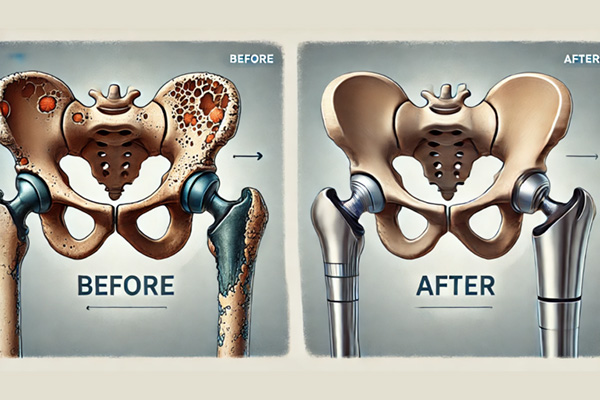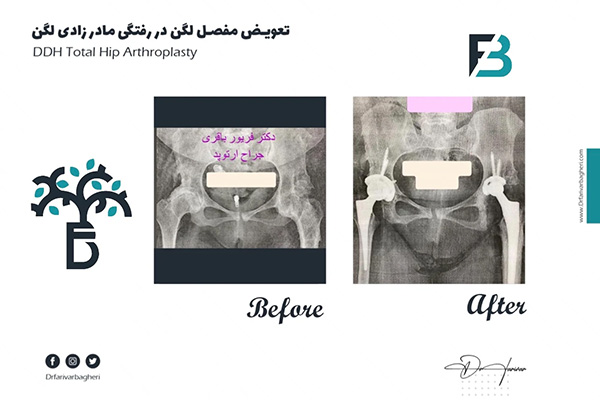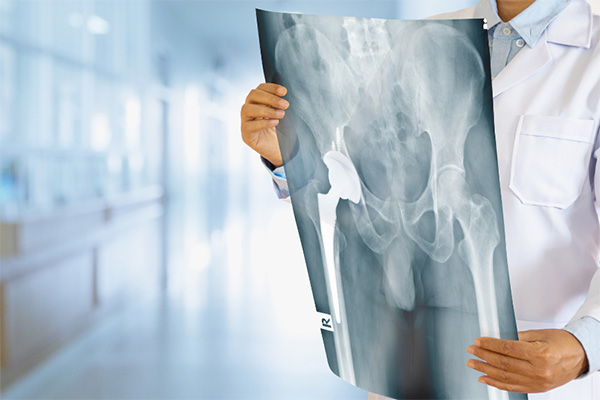Are you considering hip replacement surgery in Dubai? If you’re living with constant hip pain or mobility issues, Dr Fariwar Bagheri can offer the life-changing solution you’ve been looking for. Whether due to osteoarthritis, injury, or age-related degeneration,We will guide you about hip replacement surgery in Dubai—from understanding the procedure to getting surgery done from the best hip surgeon and managing your recovery.
What is Hip Replacement Surgery?
Hip replacement surgery, also known as total hip arthroplasty Dubai, involves replacing the damaged or diseased portions of the hip joint with prosthetic components. This procedure aims to relieve pain, restore mobility, and significantly improve the patient’s quality of life. It’s particularly recommended for individuals suffering from advanced osteoarthritis, rheumatoid arthritis, hip fractures, or avascular necrosis.


Who Needs Hip Replacement or Total Hip Arthroplasty (THA) Surgery?
You might be a candidate for hip joint replacement in Dubai if you:
- Experience severe hip pain even during rest
- Struggle with daily activities like walking or climbing stairs
- Have not responded to non-surgical treatments such as medication or physical therapy
- Suffer from Osteoarthritis or rheumatoid arthritis or had a serious hip fracture
Types of Hip Replacement Surgeries
- Total Hip Replacement (THR): The most common procedure replacing both the acetabulum (hip socket) and the femoral head (thigh bone head).
- Partial Hip Replacement (PHR): Often performed after specific types of hip fractures, replacing only the femoral head.
- Hip Resurfacing: Involves capping the femoral head with a smooth metal covering and replacing the acetabulum.
- Minimally Invasive Hip Replacement: Involves smaller incisions, leading to faster recovery and less post-op pain.
- Robotic Hip Replacement Surgery: Uses robotic technology for enhanced precision and alignment.

Criteria for Choosing a Top Orthopedic Surgeon For Hip Replacement and Total Hip Arthroplasty in Dubai
When choosing a surgeon for private hip surgery Dubai, consider:
- Board certification and specialization in orthopedic surgery
- Experience with hip arthroplasty Dubai and minimally invasive techniques
- Patient reviews and successful case histories
Costs and Insurance for Hip Replacement Surgery in Dubai
The cost of Hip Replacement surgery depend upon the several factors such as severity of the pain, doctors experience, technique used, procedure types etc. On average, hip replacement surgery Dubai can range from AED 35,000 to AED 70,000. Usually Hip replacement surgery is covered under the insurance policies, still Confirm if
- your insurance covers arthritis hip replacement Dubai or osteoarthritis hip surgery Dubai
- Check for pre-authorization requirements
- Ask about available payment plans
Preparing for Hip Replacement Surgery
Diagnosis & Tests:
- Blood work and urine tests
- X-rays or MRI scans
- Cardiac evaluations, especially for older patients
Pre-surgery Checklist:
- Stop certain medications as advised
- Arrange for transportation post-surgery
- Prepare your home for limited mobility

What to Expect on the Day of your Surgery
- Admission and pre-operative preparations
- Meeting with the anesthesiologist
- The surgical procedure, which typically lasts 1-2 hours
- Initial recovery in the post-anesthesia care unit (PACU)

Hip Replacement Recovery and Rehabilitation
Physical Therapy
A customized rehabilitation plan begins right after surgery. It typically includes:
- Strength-building exercises
- Range-of-motion activities
- Gradual walking routines
Hospital Stay & Immediate Care
- Most patients stay 2–4 days in the hospital
- Pain management via medication
- Begin moving with assistance by Day 1
Home Recovery Tips:
- Use mobility aids as instructed
- Avoid high-impact activities
- Stick to prescribed physical therapy
Dr Fariwar Bagheri is the best surgeon for the Hip replacement surgery in Dubai. His clinic is a well-established and highly successful solution for individuals suffering from chronic hip issues. Whether you opt for a traditional procedure or advanced Minimally Invasive hip replacement surgery Dubai, the key to success lies in choosing the best hip replacement surgeon, preparing thoroughly, and adhering to your recovery plan. Begin your journey toward a pain-free, more active life by scheduling a consultation with a trusted hip orthopedic expert today!
FAQs
Patients with painful osteoarthritis of the hip or untreated hip dislocations that became painful.
Loss of blood supply to the head of the femur alters its spherical shape and polished articular surface, which finally leads to wearing of the joint and painful osteoarthritis. In progressive cases with osteoarthritis, its effective treatment is hip replacement.
The most common reason is long-term and high dose usage of glucocorticoids. Another common reason is bodybuilding drugs, which contain anabolic steroids such as testosterone.
Non-standard herbal powders for weight gain offered by herbal pharmacies almost universally contain glucocorticoids, which has been used illegally in the preparation of such powders that has led to abundant cases of avascular necrosis. Excessive and prolonged alcohol consumption is another reason. Also, some underlying diseases can lead to this disease. In most cases, no reason can be found which we call “idiopathic”.
The best surgical outcomes in terms of patient satisfaction are related to this surgery. There is about 90% complete satisfaction, which is a novel number in the context of medical treatments.
It depends on the patient’s conditions (e.g., the degree of osteoarthritis and pain) and physician’s opinion, but the most important factor is the quality and quantity of the patient’s pain.
- Pain which has disturbed patient’s daily activities.
- need to take analgesics.
- Persist for more than 1 year.
- Non-surgical treatments such as physical therapy and intra-articular injections could not control the pain.
With the arrival of newer prostheses, it became possible to perform this surgery for younger patients, even in youth.
Blood and urine lab tests, plain radiography, cardiologist consultation in patients over 50 years old, internist consultation in patients with an underlying disease.
No, but it must be under control, which can be confirmed by lab tests.
No.
The patient should walk the day after the operation via help of two crutches or a walker.
Yes, some types of this surgery require that. But in the technique that I use, there is no need for a pillow.
He/She should get out with help on the non-operated side, and the non-operated limb should be placed on the ground initially.
Depending on the type of the operation, type of the prosthesis, severity of osteoporosis, and conditions happening during the operation, the amount of weight-bearing will differ. Sometimes it is completely allowed and other times it is only allowed to the extent that the tip of the toe touches the ground. The surgeon’s order should be followed.
The day after the operation. A long sitting toilet is recommended.
One week after the operation, provided that the wound doesn’t have any discharges.
Yes, on the 3rd day following the operation, you can take a bath with a waterproof dressing, provided that it is completely waterproof and correctly installed.
Usually 2 weeks after the operation.
- Short course of antibiotics.
- About one month of blood thinners.
- Analgesics as long as necessary. Some analgesics are prohibited in some surgeries, and their administration should be according to the physician’s order.
It depends on the general physical fitness of the patient and his/her capability to maintain the balance. Usually, crutches can be put away for 6 weeks after the operation, but sometimes it is needed to use them for a longer period.
Power walking, swimming, golf, cycling.
About 6 months, although it is not recommended.
Typically, yes.
It depends on the muscle function return and the patient’s recovery rate. Often it varies between 6 months to one year, or even longer in some instances.
On average, the lifespan of prostheses is 15 years, and after the prosthesis loosens, it will need to be replaced again. Sometimes, for some reasons, it can happen earlier or later, but 15 years can be considered as an average.
The lifespan of the prosthesis is more influenced by the installation method and correct choice of prosthesis type to be suitable for the patient than its brand. Different brands have almost the same lifespan. But as a general rule, the way of usage and the amount and intensity of a patient's physical activities are the most important influencing factor in the lifespan of the prosthesis. Heavy and intense activities avidly reduce the lifespan of the prosthesis.
No.
Yes after the Hip replacement operation, it is always requested to consult the surgeon on frequent basis as per the mentioned schedule
- First visit - after a few days of the surgery.
- Second visit- after 2 weeks
- Third visit - after one month
- Fourth Visit - After 3 months
- Fifth Visit - After 6 months
Annual Visits or regular checkup are required as part of the Hip replacement maintenance.
- What type of hip replacement surgery is best for my condition?
- What are the risks and potential complications?
- How long is the recovery period, and what should I expect?
While the actual surgical cost cannot be entirely avoided, it is highly advisable to have comprehensive medical insurance and to explore available payment plans. Many healthcare providers in Dubai offer policies that alleviate the burden of immediate upfront payments, helping to manage your budget and mitigate direct medical expenses

